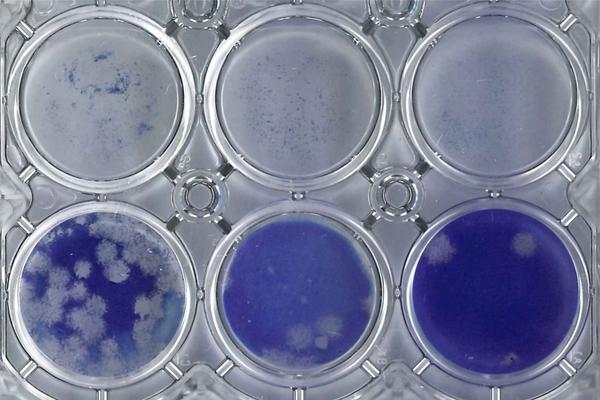Researchers at LSTM are in the unique position to have the capacity to work with infectious SARS-CoV-2 (the cause of COVID-19) and complete assays to quantify infectious virus. There are very few laboratories in the UK which have this capacity and, consequently, LSTM has partnered with other research institutions to provide these skills and capabilities.

The team produces virus to carry out experiments: Knowing how many infectious viruses are in a sample allows the team to determine how well they have inactivated the virus, or how many viruses have been neutralized during the experiment or if specific cell types are susceptible to infection.
Developing organoid model systems for SARS-CoV-2 infections: Establishment of expandable organoid culture systems to model the infection and replication process the COVID-19 virus will lead the way to us discovering aspects of its biology which can be targeted for potential therapeutics and vaccines.
Using neutralising antibody assays to determine previous exposure to the virus in both humans and animals: Virus neutralisation assays detect antibodies that are capable of inhibiting virus replication, and by understanding which neutralising antibodies are mounted following exposure to COVID-19 can support the development of vaccines to target SARS-CoV-2.
Perform virus inactivation protocols so downstream laboratory approaches can be undertaken at lower biosafety levels: Researchers have examined several methods to inactivate SARS-CoV-2.
Developing novel microscopy-based approaches to examine virus-host cell interactions Understanding the infection process of SARS-CoV-2 and how it infects host cells is one avenue of exploration in the development of novel therapeutics and vaccines to this virus. If researchers can prevent SARS-CoV-2 from binding to host cells, infections can be managed more effectively.